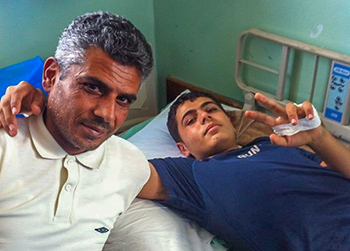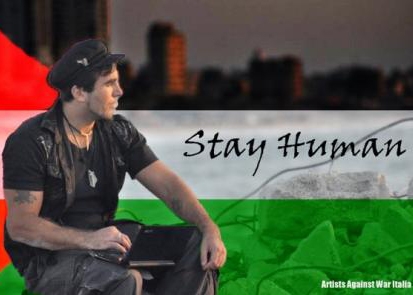Adopting Americana music as cultural “co-resistance” to Israel’s colonization, occupation and apartheid is inspired by the renewed vision of Palestinians seeking freedom and self-determination in historic Palestine, forsaking the 1993 Oslo-imposed goal of a demilitarized Palestinian bantustan state and reclaiming the 1960s and 70s PLO goal of equal citizenship in one secular democratic state shared by Palestinians and Israeli Jews throughout historic Palestine, modeled on the universal creed of “self-evident” “truth” “that all men (and women) are created equal.”
As Yousef Munayyer, prior Executive Director of the U.S. Campaign for Palestinian Rights, advised in his 2015 article What Palestinians Really Want: “The focus of Palestinian national strategy should not be statehood but rather on reclaiming rights. This means officially declaring the two-state solution dead…. Palestinian leaders should support coexistence over nationalism, integration over exclusion and equality over separatism.”
As Dr. Haider Eid, Professor of Post-Colonial and Post-Modern Literature at Al-Quds University in Gaza and Co-Founder of the One Democratic State Campaign (ODSC), declared in a 2013 joint interview with Israeli activist Ronnie Barkan, Co-founder of Boycott From Within (14:20):
“We need a paradigm shift. We must start fighting for civic democracy. One person, one vote. We need a secular democratic state for all its citizens…. That’s what you have in the United States of America. Why should you have it in the United States and in South Africa and we should not have it in Palestine?… A secular democratic state is pragmatic, practical, and it’s the only solution that can guarantee peace with justice because it is a principled solution…. Our struggle is universalistic. It is non-tribalistic. It is one person one vote. It is a state for all its citizens regardless of their race, religion or ethnicity. This is the minimum that we should be fighting for.”
Discussing his 2020 book The 100 Year’s War on Palestine, Professor Rashid Khalidi of Columbia University voiced the Palestinian demand for “justice and equality,” stating, “There must be complete equality in terms of the people’s rights (Jews and Palestinians)…. Just as in the United States everybody has equal rights, everybody in (historic) Palestine must have equal rights.”
Describing the proposal of Palestinian American delegates to the 2020 Democratic National Committee “to support Israel as a state for all its citizens rather than an ethnically exclusive ‘Jewish state,’ which is an endorsement of institutionalized racism,” ask rhetorically, “Would we ask that the United States be recognized as a White, Christian country?” Of course not!
These Americana songs support what Dr. Haider Eid describes as the “principled,” “pragmatic,” “universalistic,” “non-tribalistic” Palestinian (and American) “struggle” to create and maintain “a state for all its citizens regardless of their race, religion or ethnicity.” Yalla!

Palestine Hero — a tribute to Ahed Tamimi, her father Bassem, her mother Nariman and the people of Nabi Saleh, West Bank, Palestine who protest nonviolently each week demanding repossession of their land stolen by Israel’s occupation and illegal settlements (adapted from John Lennon’s Working Class Hero)

Shine A Light — a tribute to Rachel Corrie, member of the Palestinian-led nonviolent resistance group the International Solidarity Movement, who, with love and devotion, gave her life for the people of Gaza, Palestine (adapted from The Rolling Stones’ Shine A Light)

Rachel Corrie moments before her death in Rafah, Gaza, speaking through a bullhorn to the driver of the approaching Israeli military bulldozer, declaring her refusal to move as she stands before the home of a Palestinian family to prevent its demolition. Moments later, the bulldozer ran over Rachel and crushed her to death. The State of Israel has refused to acknowledge responsibility for the death of Rachel Corrie.

That’s When I Reach for My Tesbiyeh — a tribute to Iyad Burnat, his sons Majd and Abdul-Khalik, both wounded by the Israeli military, and the people of Bil’in, West Bank, Palestine who protest nonviolently each week demanding repossession of their land stolen by Israel’s occupation and illegal settlements (adapted from Mission of Burma’s That’s When I Reach for My Revolver, note: Tesbiyeh are Islamic prayer beads)

Holy Land Heartache — a tribute to Italian activist Vittorio Arrigoni, member of the Palestinian-led nonviolent resistance group the International Solidarity Movement, with love and devotion to the people of Gaza, whose parting salutation to friends was “Stay human” (adapted from Jacob Dylan’s 6th Avenue Heartache)
